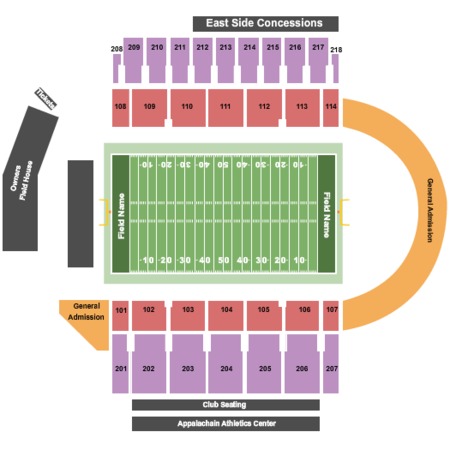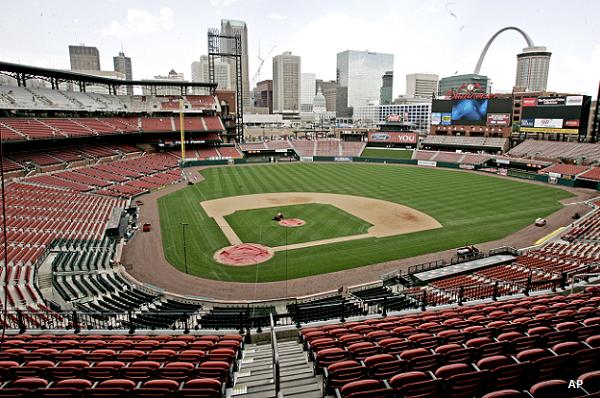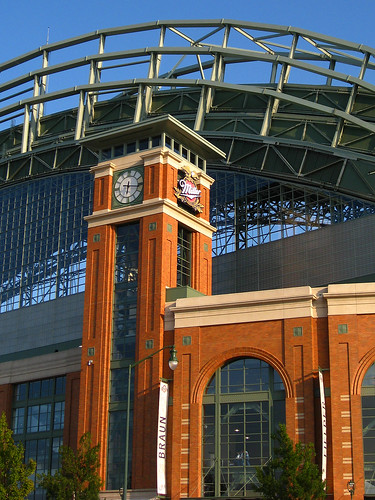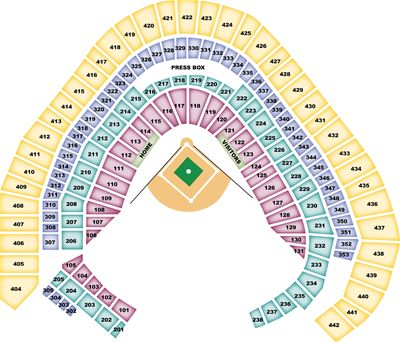Brewers Stadium Seating
The Mountaineers are the first FCS team to win three straight national championships since the playoffs began in 1978. They are also the first Division I program to win three consecutive national championships since Army accomplished the feat in 1944, 1945, and 1946, and the first Division I school in modern times to claim three straight undisputed national titles. Appalachian became the first FCS team to ever receive votes in the final Associated Press (AP) college football poll on January 8, 2008. The Mountaineers received five points in the poll, tying South Florida for 34th.
At the conclusion of the 2008 season, Armanti Edwards became the Mountaineers' first Walter Payton Award winner, given to the most outstanding FCS offensive player. Head coach Jerry Moore also took home his sixth Coach of the Year award, the most in Southern Conference history.
Appalachian State began playing organized football in 1928. The coach during that first year was Graydon Eggers. The Mountaineers competed as an independent before joining the National Association of Intercollegiate Athletics (NAIA) North State Conference as a charter member in 1931. Kidd Brewer was the head coach of the Mountaineers from 1935–38, leading the team to two postseason bowl games. Brewer's 1937 squad is best remembered for going unbeaten and unscored upon during the regular season, outscoring opponents 206–0 before losing a postseason game to the Golden Eagles of Southern Miss, 7–0. Appalachian found continued success under coach E. C. Duggins (1947–50 and 1952–55). During Duggins' eight years as coach, the Mountaineers claimed three more North State Conference championships and played in seven bowl games. The Mountaineers again competed as an independent from 1968–71 before accepting an invitation to the Southern Conference.
College Field was the home of Appalachian football from 1928 to 1961. Located at the future site of Rankin Hall and Edwin Duncan Hall, the stadium was replaced by Kidd Brewer Stadium in 1962.
Opened in 1962, Kidd Brewer Stadium was originally named Conrad Stadium after former university trustee and R.J. Reynolds executive William J. Conrad. The stadium was renamed in 1988 for Kidd Brewer who coached the Mountaineers from 1935–38. Nicknamed "The Rock", Kidd Brewer sits at an elevation of 3,280 feet (1,000 m) but is measured at 3,333 feet (1,016 m) for NCAA qualifications. The stadium was the first venue in either North or South Carolina to install artificial turf. The Mountaineers and Elon staged the first game on fake grass in the Carolinas on October 3, 1970. After a 2002 First Round I-AA playoff loss to Maine, Appalachian compiled a 30 game unbeaten streak at Kidd Brewer Stadium that ended on October 20, 2007. The Mountaineers led the FCS in average attendance in 2007, 2008, and 2010 with totals of 24,219, 25,161 and 25,715 respectively.
Completed in 2009, the stadium has seen extensive renovations as part of a $50 million facilities improvement campaign. An upper deck with additional seating for 4,400 was added to the east (visitor) stands for the 2008 season. Additional restrooms and concessions have been added. Most significantly, rising behind the west (home) stands and replacing the former pressbox facilities, the 100,000 square feet (9,300 m2) KBS Complex was completed for the start of the 2009 season. The KBS Complex includes new stadium entrance plaza, strength and conditioning rooms, a hydrotherapy room, locker rooms, athletics offices, stadium suites and club seating.
Appalachian has won three national championships< in the NCAA Division I FCS, the highest division in college football to hold a playoff tournament to determine its champion. The Mountaineers became the fifth program in FCS history to reach the national title game three straight years joining Eastern Kentucky (1979–82), Georgia Southern (1988–90 and 1998–2000), Marshall (1991–93) and Youngstown State (1991–94). Appalachian also had a thirteen game postseason winning streak, a record for consecutive wins in contiguous years that ended with a loss to Richmond in 2008.
Among current conference members, the Mountaineers are in second place with nine championships. The Furman Paladins lead the conference with twelve championships. Appalachian State plays the Western Carolina Catamounts annually for the Old Mountain Jug. The first game played between the two universities was in 1932, and the Jug was first introduced in 1976. Appalachian's record in games played is 54–18–1, and 26–7 in the Jug era. The Mountaineers currently hold the trophy having won the 2009 contest. The Miracle on the Mountain took place at Kidd Brewer Stadium on October 12, 2002 and was selected as the "ABC Sports Radio Call of the Year." A low scoring affair, the Paladins elected to attempt a two-point conversion after scoring the go-ahead touchdown with 7 seconds left in the game. Leading 15–14, Furman quarterback Billy Napier's pass was intercepted by Josh Jeffries at the 4 yard line. He lateraled the ball to Derrick Black who returned it for a score giving the Mountaineers a 16–15 win.
At the conclusion of the 2008 season, Armanti Edwards became the Mountaineers' first Walter Payton Award winner, given to the most outstanding FCS offensive player. Head coach Jerry Moore also took home his sixth Coach of the Year award, the most in Southern Conference history.
Appalachian State began playing organized football in 1928. The coach during that first year was Graydon Eggers. The Mountaineers competed as an independent before joining the National Association of Intercollegiate Athletics (NAIA) North State Conference as a charter member in 1931. Kidd Brewer was the head coach of the Mountaineers from 1935–38, leading the team to two postseason bowl games. Brewer's 1937 squad is best remembered for going unbeaten and unscored upon during the regular season, outscoring opponents 206–0 before losing a postseason game to the Golden Eagles of Southern Miss, 7–0. Appalachian found continued success under coach E. C. Duggins (1947–50 and 1952–55). During Duggins' eight years as coach, the Mountaineers claimed three more North State Conference championships and played in seven bowl games. The Mountaineers again competed as an independent from 1968–71 before accepting an invitation to the Southern Conference.
College Field was the home of Appalachian football from 1928 to 1961. Located at the future site of Rankin Hall and Edwin Duncan Hall, the stadium was replaced by Kidd Brewer Stadium in 1962.
 Miller Park will seat |  Miller Park Seating Chart and |  Events Schedules Seating |  Kidd Brewer Stadium Seating |  Milwaukee Brewers Stadium |
 Stadium) Seating Chart |  Yankee Stadium Seating |  Brewers angered by family |  Milwaukee Brewers Alcides |  County Stadium seating diagram |
Appalachian has won three national championships< in the NCAA Division I FCS, the highest division in college football to hold a playoff tournament to determine its champion. The Mountaineers became the fifth program in FCS history to reach the national title game three straight years joining Eastern Kentucky (1979–82), Georgia Southern (1988–90 and 1998–2000), Marshall (1991–93) and Youngstown State (1991–94). Appalachian also had a thirteen game postseason winning streak, a record for consecutive wins in contiguous years that ended with a loss to Richmond in 2008.
 Milwaukee Brewers Carlos Gomez |  Miller Park stadium, the home of the Milwaukee Brewers. |  Miller Park Seating Chart |  Stadium Seating Chart) |  Busch Stadium Seating Guide |
 5:30 pm – Stadium seating |  Stadium operated by: |  seat 15 (brewers stadium) |  State Mutual Stadium Seating |  of the Brewers stadium as |

0 Comments:
Post a Comment
Subscribe to Post Comments [Atom]
<< Home